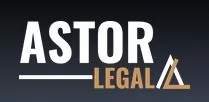A man who was found not guilty to drink driving charges after giving false evidence has been jailed for perjury.
Bernard Andrew Nash successfully sued NSW police after lying under oath during his drink driving case.
However, ten years later the real estate agent was found guilty of two perjury charges.
They related to false evidence he gave during both the initial charge and then when he sued the State of NSW.
Not Guilty to Drink Driving Charges
The 63-year-old Central Coast businessman was found not guilty to drink driving charges after he gave evidence that he only consumed three light beers before driving in 2011.
This was supported by CCTV footage from Shelly Beach Golf Club. However, it was revealed later that the footage had been doctored.
The full length tape showed he drank seven full-strength schooners in a little over two hours.
A highway patrol officer pursued Nash on 13 October 2011, when he drove the short distance from the golf club to his Shelly Beach home.
Under Schedule 3 of the Road Transport Act 2013, police cannot breath test a person while they are on their property. This is known as the 'home-safe' rule.
Despite this, police still arrested the then 53-year-old. There was a struggle resulting in police laying a resist arrest offence in addition a drink driving charge.
The case proceeded to hearing in mid-2012. Nash was acquitted of both offences after claiming under oath that he drank no more than three schooners of light beer.
Given the verdict and the unlawful arrest, Mr Nash went on to sue the State of NSW for unlawful arrest, battery and malicious prosecution.
He was awarded $124,958 in damages after again perjuring himself during those proceedings. He is yet to receive that damages award as the case is being appealed.
However, a club worker had accessed the full CCTV footage and contacted police after seeing media reports. She provided police with a copy she had kept herself.
Jailed for Perjury Charges
Bernard Nash was jailed for perjury charges at Gosford Court House.
Judge Sarah Huggett sentenced the real estate agent to five years and six months with a non-parole period of three years and six months.
The general manager of Shelly Beach Golf Club, Craig Ellis, was previously jailed after pleading guilty to two counts of tampering with evidence. This related to his role in doctoring the CCTV footage for the drink driving charges.
Judge Huggett labelled perjury offences an "attack on the administration of justice which depends on witnesses to give truthful evidence".
She found both offences were objectively very serious and assessed his moral culpability as very high for the second perjury offence. This was because he knew he was alleging very serious misconduct against police.
"He chose to maintain the perjured evidence to enhance his prospects of success to receive a financial benefit," she said.
His conduct was not spontaneous, but calculated, pre-meditated and planned which further aggravated the offending.
The 63-year-old's criminal lawyers argued that their client had been hardworking, provided for his family and contributed to the community. Further, his only conviction was for another drink driving charge in 1979.
Mr Nash maintained that he genuinely believed he had only consumed three beers when he gave his evidence. Because of this, Judge Huggett found no evidence to support remorse or insight, but accepted that his risk of his reoffending was low.
Defences to Drink Driving Charges
There are primarily two defences to drink driving charges that can be employed by drink driving lawyers.
The first defence is known as the '2 hour rule'. This is set out in Clause 2(d), Schedule 3 of the Road Transport Act 2013 (NSW).
It explains that a police officer cannot require a person to submit to a test, analysis or assessment, or to provide a sample two hours after they were driving.
This period extends to four hours for a blood sample, urine sample and oral fluid test.
Secondly, there is the defence known as the 'home safe' rule. Clause 2(e), Schedule 3 of the Road Transport Act 2013 (NSW) sets out that a police officer cannot require a person to submit to a test, analysis or assessment, or to provide a sample at the person's home.?
Importantly, a person's home incudes any part of their property such as a driveway, front yard and back yard. ?
Often Police are unaware of these clauses and as such an experienced drink driving lawyer will be able to have the charges dismissed. ?
Sometimes, a person will attempt to argue that they were not 'driving' the vehicle. In order for this defence to be successful, you will have to prove that you were not:
(a) in control of the steering, movement or propulsion of a vehicle,
(b) in relation to a trailer, drawing or towing the trailer,
(c) riding a vehicle.
These factors are set out in Section 4 of the Road Transport Act 2013.

